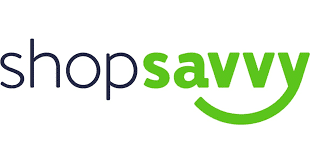You have textbooks to buy, tuition to pay, and room and board to cover. There’s a reason “broke college student” is a cliche. The struggle is real.
If your college job isn’t leaving enough wiggle room in your budget, look to money-saving apps that can trim your everyday expenses or automate your savings. Some apps can even help you reduce your student loan debt.
You may have heard of coupon, rebate, and micro-investing apps before. But these apps are specifically geared to the needs of college students. They help you save money on the things you need most while staying on track to reach your saving and investing goals.
The Best Money-Saving Apps for College Students
Our pick for the best overall money-saving app for college students is FastWeb College Scholarships. FastWeb simplifies the search for scholarships — a top way to save money while in college. Scholarships can significantly reduce the need to borrow with student loans too.

Motley Fool Stock Advisor recommendations have an average return of 618%. For $79 (or just $1.52 per week), join more than 1 million members and don’t miss their upcoming stock picks. 30 day money-back guarantee. Sign Up Now
The other apps on this list do one or two things really well, such as automate microsavings, score you the best deals on textbooks or local entertainment, or earn you cash back on your everyday purchases.
Best Overall: FastWeb College Scholarships App

The FastWeb College Scholarships app is our top choice because scholarships are the best way to save money during your college years and beyond. There’s no better way to reduce or avoid student loan debt.
FastWeb’s free app makes the scholarship search and application process convenient with its simple-to-use features. It helps you quickly and easily locate as many possible chances to get financial aid for college as you can — right from the palm of your hand.
Use it to:
- Get matched with scholarship opportunities that fit your interests and experience
- Organize scholarships you’re interested in applying to and discard the ones you’re not
- Keep track of your scholarship applications and status
- Stay up-to-date on current scholarship opportunities
For even more savings, visit FastWeb’s website. It has an up-to-date list of student discount opportunities at top retailers.
Best for Micro-Saving: Digit

College students don’t have much spare cash to save. But every penny adds up. And micro-savings apps like Digit really make them count.
Digit works differently from other micro-savings apps, which typically round up the change from your everyday purchases. Instead, Digit helps you save money through three powerful savings features. You can manually adjust any automated savings amounts.
- Hands-Free Budgeting. An automated budgeting feature analyzes your income and expenses and determines an amount to save specific to your situation.
- Automated Savings. This feature takes a small amount from your linked account every day, which the app determines is right for your budget and savings goals.
- Unlimited Savings Goals. You can set unlimited goals to save for, such as a study abroad trip or paying off your student loans, which Digit uses to calculate your micro-savings amounts.
Additional features:
- Digit automatically moves money to a dedicated account for paying bills so that you’re always covered
- Digit uses your budget information to calculate a safe amount to invest in ETFs through the app
- Pay $9.99 per month to access all Digit’s features or $5 per month for savings features only
- Save 20% by paying annually
Best for Micro-Investing: Acorns

If you start investing while you’re still in school, you’ll end up years ahead with your retirement savings. But investing can be intimidating for those new to it.
Micro-investing apps like Acorns make investing a bit more newbie-friendly. The app has two powerful automation features to make the process more convenient and intuitive:
- Round-ups, which automatically round up and invest the change on every purchase you make with your linked debit cards
- Found Money, which pays up to 10% cash back when you shop with partner companies and invests the reward
Additional features:
- Automatically invest your spare change in optimized, risk-appropriate portfolios maximized for growth
- Round-up multipliers multiply the value of each Round-up by up to 10
- Recurring investments allow you to auto-invest set amounts every day, week, or month
- Fractional share investing starts at $0.01 per purchase
- Access free financial literacy content in the app
- Pay $3 per month for a personal plan
- Upgrade to the family plan for $5 per month and get investment accounts for your kids
Best for Maximizing Your 529: UPromise

UPromise is a free savings app that helps you maximize your 529 savings plan even after you enter college.
You can continue to add to your 529 plan tax-free throughout your college years and use your investments to pay your college expenses. You can also use up to $10,000 of your 529 post-college to pay your student loans.
UPromise offers two ways to earn cash back on your everyday purchases to put toward your 529:
- Shopping rebates, which give you cash back when you shop through the smartphone app or browser extension
- Dining rebates, which give you 2.5% cash back on your total bill when you dine at participating restaurants using a linked debit or credit card
Additional features:
- Earn rebates for in-store grocery purchases when you submit paper receipts
- Apply for a UPromise Mastercard, which earns you 5% cash back on dining
- Automatically transfer your rebates to your linked 529 college savings account, checking account, or savings account
Best for Shopping Discounts: UNiDAYS

UNiDAYS compiles discounts exclusively for students from more than 150 retailers. If you’re looking for a coupon on a new laptop, a pair of sneakers, or some noise-canceling headphones, the free UNiDAYS app is your one-stop shop.
Just download the free app on your phone for access to hundreds of discounts usable in-store, online, or by shopping through the app.
Additional features:
- Find exclusive video content covering college life, politics, and pop-culture topics in the app
- Enjoy just-for-fun extras like college tips and quizzes
- Apply to become a guest blogger for UNiDAYS
- Look out for periodic opportunities to collaborate with your favorite brands
Best for Earning Cash Back: Rakuten

These days there are tons of apps and browser extensions for earning cash-back rewards, but the one that consistently returns the highest amount of cash back at the most retailers is Rakuten.
The free Rakuten app lets you earn in two ways:
- Activate the browser extension or shop through the app to qualify your purchases for cash back
- Connect your debit or credit card to the app so that it recognizes your selected cashback offers when you shop in-store at Rakuten’s partner retailers.
Additional features:
- Earn double the cash back with select Rakuten partner retailers
- Look out for opportunities to earn cash back on special travel and vacation deals
Best for Comparison Shopping: ShopSavvy

When your budget is tight, you have to make every penny count. That means shopping around for the best price. But dragging yourself from store to store wastes time and gas, thereby defeating the point of any savings.
That’s where ShopSavvy comes in. This free app compares prices from all the stores in your local area that have the product in stock. That makes it easier to make more efficient shopping trips, saving gas, time, and money.
ShopSavvy is super easy to use. Simply scan the product barcode, enter the UPC, or search by keyword to compare prices at stores near you and on the Internet.
Additional features:
- Use ShopSavvy to find lower prices at other stores before you check out — and trigger the retailer’s price match policy
- Scan QR codes directly into the app
Best for Saving on Textbooks: BookScouter

College textbooks are a huge expense for most students. I should know. Not only do I have 10 years of higher education under my belt, I’m a college teacher. That means I assign textbooks as part of my job.
But even though I have to assign them, I don’t get a cut. So I’m always looking for ways to help my students decrease their cost. Aside from choosing the least expensive options I can, I like to point them toward used textbook and textbook rental outlets.
BookScouter is a totally free, one-stop option that makes it easy to compare prices across more than 25 book retailers and more than 20 rental vendors. It’s the best way to find the least expensive source for every book you need.
Additional features:
- List your books for resale on BookScouter and get offers from more than 30 buyback vendors will give you an offer
- Use the app to scan barcodes and find the book you need at the lowest price
- Apply or BookScouter’s quarterly $500 textbook scholarship
Best for Finding Local Student Discounts: TUN

TUN, which stands for The University Network, is a free app that hooks you up with all sorts of student discounts. TUN really stands out for its deep lineup of local discounts — more than any other app on this list.
These include everything from student discounts at local retailers and restaurants to discounts on local attractions like movie and museum tickets. TUN even finds free local events.
Additional features:
- Use the app to search for scholarships in your area
- Search TUN for job, internship, and volunteer opportunities
- Take advantage of the app’s textbook price comparison tool
Best for Saving on Gas: GasBuddy

Everyone could use a little help saving on gas these days. But as a college student, you probably put in extra mileage — whether you’re commuting back and forth to class each day or driving long distances back home on breaks.
GasBuddy is the best app to save money on gas, bar none — and it’s totally free. It lets you search for the best gas prices by location and by using additional search criteria like fuel type, payment method, and station brand. With GasBuddy, you’re just a few taps away from the lowest gas price in your area.
Additional features:
- Use GasBuddy’s trip planner to calculate the cost of fuel for your trip and locate gas stations along the way
- Plan your route around outage areas — places with no nearby gas stations
- Save up to $0.25 per gallon when you pay with the free GasBuddy debit card
- Earn rewards points (GasBack) on everyday purchases and redeem them for discounts on fill-ups
Best for Saving on Travel: Flights by StudentUniverse

Students who travel home by air or who are planning study abroad trips or spring break vacations can save big with StudentUniverse, a free travel booking app built for young people and lifelong learners.
Signing up for a free membership gets you access to exclusive flight discounts on more than 200 airlines. StudentUniverse also offers discounts on hotels, rental cars, and travel tours.
Additional features:
- Amazon Prime Student members save up to an additional 10% on flights and hotels
- Members get promo codes on top of exclusive discounts to make air travel even cheaper
Methodology: How We Select the Best Money-Saving Apps for College Students
We use several key metrics to evaluate money-saving apps and choose the best for our readers. Each relates in some way to the apps’ overall savings capability and usefulness.
Because saving money is fairly straightforward, we also consider other app features and capabilities. These include tools that build financial literacy and lifelong money management habits, like budgeting and investing. Generally, more comprehensive and capable apps rank better in our methodology.
Ease of Use
Most college students are tech-savvy. They know what they want and don’t want in an app. However, when it comes to dealing with finances on their own, they may not be as comfortable.
Granted, not every college student is in their late teens or early 20s. But the average student is likely approaching saving, investing, and budgeting on their own for the first time. That being the case, money-saving apps for college students need to be user-friendly and intuitive, especially if they include additional personal finance features.
Amount of Savings
A penny saved is a penny earned. And every penny does add up — eventually. But life is short. A grocery app that only puts two cents cash back in your savings account toward your spring break trip isn’t very useful.
Savings potential is thus a key criteria for any money-savings app.
Bonus points go to apps that work harder to maximize students’ tight budgets. These apps might zero in on deals exclusive for students, which often tend to be deeper than those for the general public. Or they might go the extra mile to negotiate deals specifically for college students.
Cost
You want an app that saves you money, not one that charges a recurring fee that eats into your savings. Accordingly, most of our choices are free.
The apps on this list that aren’t totally free have built-in investing options. This is typical with investment apps, which often charge monthly membership fees to cover investment management expenses.
Relevance
Every category of app on our list is relevant to the life of a college student. We focus on apps geared toward saving money on textbooks, tuition, living expenses, entertainment, and travel — expenses most if not all students incur regularly.
Money-Saving App FAQs
You have questions about money-saving apps for college students. We have answers.
How Do Money-Saving Apps Work?
Some apps save you money by finding you money, such as college scholarship apps. When you apply for and win a scholarship, you’ll pay less tuition. That saves you money now. And if a scholarship means you need to borrow less in student loans, you’ll save money in the future too.
Other apps save you money by automatically taking small amounts of money out of your checking account and setting it aside in a savings account. This is called micro-saving.
Some apps invest those micro-savings. This is micro-investing.
Still other apps score you deals with upfront discounts or coupons or cash-back rebates. They ensure you pay less than the sticker price on your everyday purchases.
Finally, some money-saving apps compare prices for you. They ensure you always pay the lowest price on your purchases.
Why Should I Use a Money-Saving App?
No one needs to tell you how great it would be to stretch your dollars further. A money-saving app can help you do that.
Even if you aren’t struggling with a too-tight budget, you could probably use a little more cash. Think of all you could do with it. The more you save, the less you’ll need to borrow to fund your education.
Those savings could also mean more money to invest. The earlier you start investing, the longer your nest egg has to grow thanks to the magic of compound interest.
Or it could mean you get to spend your spring break this year somewhere warm and sunny on a beach.
Do You Need a Bank Account to Use a Money-Saving App?
It depends on the type of app. Micro-saving apps take small amounts from linked checking accounts or purchases made with linked debit cards and deposit money into linked savings accounts. If you want to use a micro-saving app, you’ll definitely need external checking and savings accounts.
Likewise, micro-investing apps take small amounts from purchases made with a linked debit card and deposit the money into an investment account, so you’ll need an external checking account to use one. You typically sign up for the investment account when you set up the app, so you won’t need to bring an existing one to the relationship.
Some other money-saving apps require a bank account, or at least a credit card,as well. For example, to earn cash back on in-store purchases with Rakuten, you need to link a debit or credit card.
But many other money-saving apps don’t require external accounts. For example, you don’t need a bank account to search for college scholarships or textbook discounts or deals on local entertainment.
Are Money-Saving Apps Secure?
The short answer is yes. But you can’t be blamed for wondering, especially considering that many of them link to your bank accounts and credit cards.
However, they’re also designed to safely protect your financial information. Typically, they do this by using the same types of data security major banks use.
These measures include:
- Storing your login information in separate databases protected with multilayered hardware and software encryption
- Encrypting any data transmitted through the app
- Requiring you to use PIN codes, Touch ID, or Face ID to access your accounts on your smartphone
How to Choose the Best Money-Saving App for College Students
To find the best money-saving app for your student career, consider what you plan to do with it. For example, are you looking for a tool to help you make a budget and plan your expenses? If so, then look into the top budgeting apps for college students.
Or are you looking for a student discount on a new pair of jeans? If that’s the case, check out coupon and rebate apps.
Once you have the right app for the right task, it’s simply a matter of deciding which gives you the most features for the least cost while offering the most amount of savings.
A word of caution: Always make sure to read the fine print. Occasionally rebates and discounts only apply to very specific items, such as the blue sneaker and not the red one. And if you book any travel plans, make sure you understand the cancelation policies, which are often very specific.